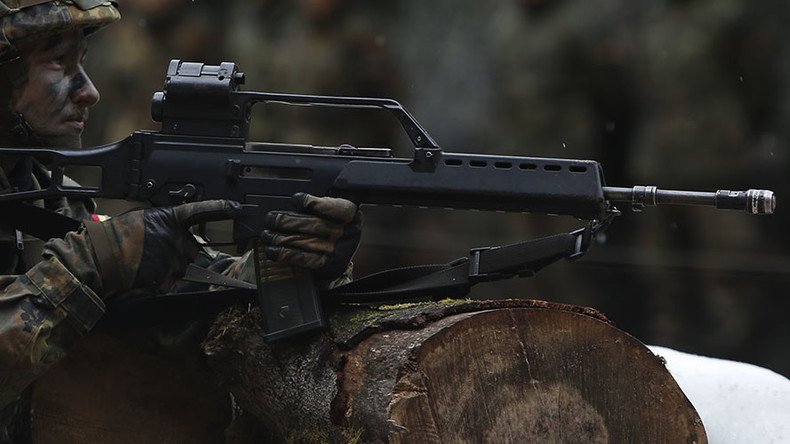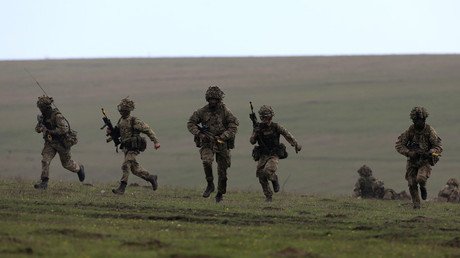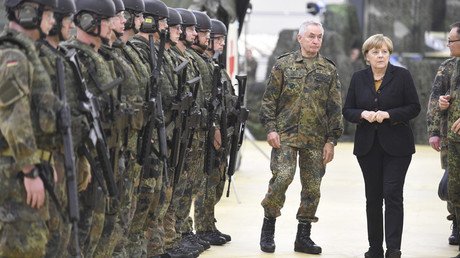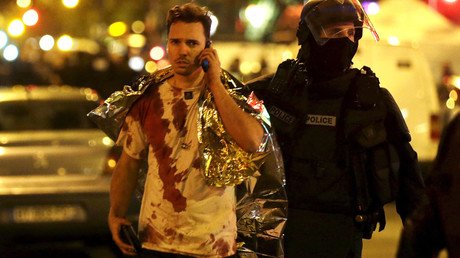EU army? New security strategy says bloc should ‘go beyond NATO’

The EU should develop military autonomy from NATO and take a stronger role on the global stage as it must be able to “repel, to respond and to protect,” a new EU security strategy says, encouraging closer military cooperation within the union.
The EU cannot any longer rely on NATO on various security issues and must instead develop an ability to “act autonomously if and when necessary,” a document named European Union Global Strategy says as it outlines new foreign policy and security proposals for the EU.
“As Europeans we must take greater responsibility for our security. We must be ready and able to deter, respond to and protect ourselves against external threats,” the paper, drafted by EU foreign policy chief Federica Mogherini, says.
“While NATO exists to defend its members — most of which are European — from external attack, Europeans must be better equipped, trained and organized to contribute decisively to such collective efforts, as well as to act autonomously if and when necessary,” it adds.
The document, presented to the European leaders at the European Council meeting on June 28, also sets ambitious goals for the Union in the face of new external security challenges that, according to the paper, range from so-called Russian “aggression” and Ukrainian crisis on the eastern borders of the block to terrorism and social and political turmoil in the Middle East and Africa.
“An appropriate level of ambition and strategic autonomy is important for Europe's ability to foster peace and safeguard security within and beyond its borders,” it says.
“A fragile world calls for a more confident and responsible European Union, it calls for an outward- and forward-looking European foreign and security policy,” the document emphasizes, admitting at the same time that the Union itself faces an “existential crisis.”
“Our Union is under threat. Our European project, which has brought unprecedented peace, prosperity and democracy, is being questioned,” it reads.
“A more credible European defense is essential also for the sake of a healthy transatlantic partnership with the United States,” the document also states. The US now subsidizes European defense by vastly outspending all other NATO members and paying about 75 percent of the bloc’s spending.
In the meantime, the paper also actively encourages European countries to increase their defense spending and create strong defense industry that would become a basis of the union’s future military autonomy.
“Investment in security and defense is a matter of urgency,” it states, stressing that “defense cooperation must become the norm.”
EU should “systematically encourage defense cooperation and strive to create a solid European defense industry, which is critical for Europe’s autonomy of decision and action,” the paper adds, stressing that member states must channel "a sufficient level of expenditure to defense, make the most efficient use of resources, and meet the collective commitment of 20 percent of defense budget spending devoted to the procurement of equipment and research & technology,” if they want to be able to cope with external threats.
The paper doesn’t explicitly mention the creation of an EU army that would require a change to the European constitution and international treaties but it actively calls for removing all barriers that could hamper the union’s military capabilities.
“We must develop the capacity for rapid response also by tackling the procedural, financial and political obstacles which prevent the deployment of the battle groups, hamper force generation and reduce the effectiveness of … military operations,” it says.
At the same time, the work on the document was also kept secret as the UK was preparing to hold a referendum on its EU membership out of fears that it could affect the outcome and shift the balance in favor of the “Leave” campaign because the UK previously opposed creating an EU army.
Meanwhile, EU officials repeatedly voiced the idea of forming the Union’s own armed forces. On June 26, the head of the European Parliament Committee on Foreign Affairs, Elmar Brok, said that the EU needs a common military headquarters that could pave the way for a united EU armed force, which would make the block’s policy much more effective and strengthen its role in the world.
In 2015, EU Commission President Jean-Claude Juncker called for the creation of a united European army, which he said would be aimed at “deterring” Russia and strengthening the alliance.
With its own army, EU would also be able to protect “peace in a member state or in a neighboring state,” he said at that time.
In the meantime, a Pew poll has shown Europeans are weary of hard power and are reluctant to boost defense spending, despite the commitment to do so by their governments.















